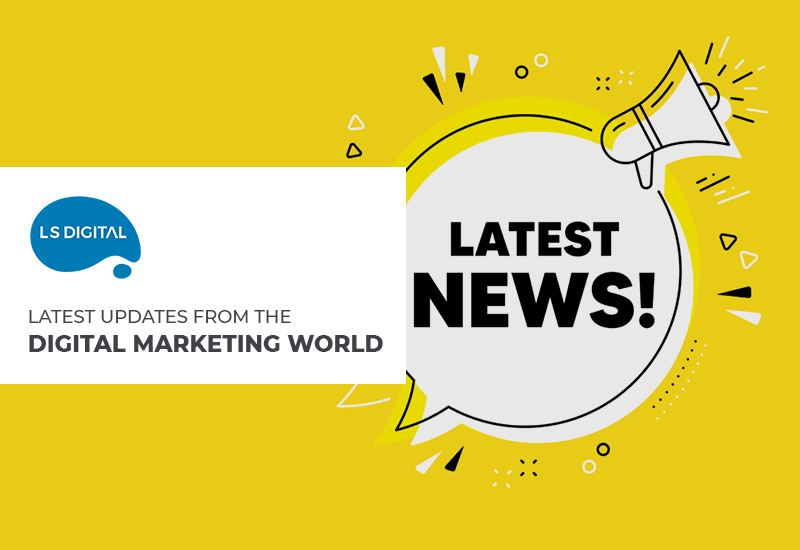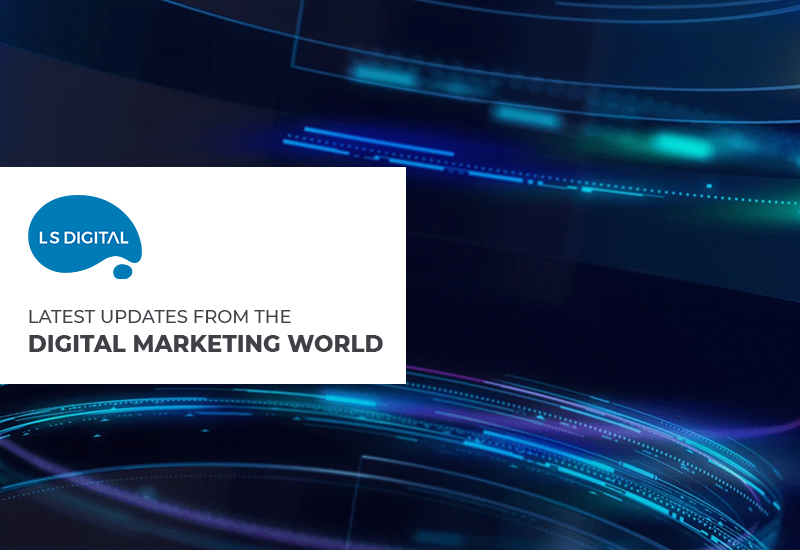Google has announced they are now fully launching the ability for businesses to quickly edit their Google My Business local listing directly in the Google search results. [Source: Search Engine Land]
While Facebook has seen major success with Instagram Stories, which is now at 250 million daily users, they’ve yet to report any official user numbers on Facebook Stories. Facebook Stories could still become a more significant element, if they just made a few tweaks. And now, they’re trying out their latest ‘tweak’, with some users seeing an option to share their Instagram Story direct to Facebook. [Source: Social Media Today]
Google introduced a beta for third-party connectors. Supermetrics is among the launch partners. Users will find the new options in the Data Studio Community Connectors Gallery. The native connection enables data from the 20-plus marketing platforms Supermetrics connects with, such as Bing Ads, DoubleClick, Facebook Ads, LinkedIn Ads, Twitter Ads and Yahoo Gemini, to be brought into Data Studio seamlessly. [Source: Marketing Land]
Earlier this year, Google launched a beta test that automatically launched machine-generated ads in a small set of AdWords accounts. The lack of control in that test wasn’t particularly well-received. Now, Google is giving it another shot, with some adjustments aimed at addressing advertiser concerns. [Source: Search Engine Land]
WhatsApp is taking its next steps towards monetization, with the hugely popular messaging app announcing a range of new features designed to better facilitate business use. [Source: Social Media Today]
The company is rolling out a new ad network called LinkedIn Audience Network. Unlike the old, fairly traditional ad network, however, the new one centers around LinkedIn’s flagship Sponsored Content ad format and skews towards syndicating that native ad primarily across mobile apps. It also resembles Facebook’s ad network, from carrying the same name to needing to address advertiser concerns over transparency and control. [Source: MARTECH TODAY]
In May, Google announced it was running a beta test with advertisers to test driving traffic from mobile search ads to AMP landing pages. On Thursday, the company said all advertisers will be able to point mobile search ads to AMP landing pages beginning in two weeks. [Source: Search Engine Land]
YouTube’s upping their live-stream game again, adding a range of new features, most of which are geared towards gamers and gaming content, but which offer more general utility either way. [Source: Social Media Today]
Facebook is bringing its most creative ad format to its most creative app. Over a year after Facebook said it would extend its Canvas ad format to Instagram, the photo-and-video app has started testing Canvas ads within people’s Stories feeds. [Source: Marketing Land]
Google’s new AMP Client ID API, coupled with Google Analytics, allows pages that are partially served on Google platforms like search and partially on site owner domains to communicate with each other. Google Analytics can understand if a user on your non-AMP pages had ever visited an AMP page displayed by Google. When true, Google Analytics can help you understand user behavior across these two page types as a single cohesive experience. [Source: Search Engine Land]
Expert Opinion:
1. Automation of marketing campaigns for the new-age customers
 Automation is no longer a fancy buzzword and has become an important part of the new-age marketers’ life. Automation can be utilised for creating impactful marketing campaigns that provide higher conversions and engagement with the consumers. Automation of campaigns allows marketers to set up various paths for connecting and following up with quality leads basis their actions and behaviour. It can help marketers save a lot of time and focus on developing robust strategies for the growth of the business. As per Marketing Automation Usage Statistics, on an average, 49% of companies are presently using marketing automation, with more than half of B2B companies (55%) adopting the technology for their marketing needs. Also, 91% of the most successful users believe that automation is very important for the overall success of their marketing across channels.
Automation is no longer a fancy buzzword and has become an important part of the new-age marketers’ life. Automation can be utilised for creating impactful marketing campaigns that provide higher conversions and engagement with the consumers. Automation of campaigns allows marketers to set up various paths for connecting and following up with quality leads basis their actions and behaviour. It can help marketers save a lot of time and focus on developing robust strategies for the growth of the business. As per Marketing Automation Usage Statistics, on an average, 49% of companies are presently using marketing automation, with more than half of B2B companies (55%) adopting the technology for their marketing needs. Also, 91% of the most successful users believe that automation is very important for the overall success of their marketing across channels.
While automation of campaigns has proven to generate enhanced returns and revenues for a lot of companies, there are a lot of other key benefits provided by automation of marketing campaigns including:
– Reduced lead time
– Enhanced campaign effectiveness
– Expanded reach to a wider audience
– Better understanding of the potential customers
– Personalised interactions with the consumers
If marketers take into account the evolving needs of prospective customers, their behaviour and interactions across different channels and challenges faced by them at various touch points, they can design relevant and efficient strategies for their automated campaigns and grow their revenues substantially. As per the Benchmarking Report on Marketing automation by B2Bmarketing.net and Circle Research, post one year of automation usage, 32% marketers claimed to see increased revenues. Those using the technology for more than two years saw 40% growth in the revenues.
The ultimate goal for every marketer is personalization and the ability to have one-one conversation with their users. Automation is the only way to have the right conversation with your users at the right time. It can be a valuable tool to improve the effectiveness and efficiency of marketing campaigns and stay ahead of the competition.
– Jaswant Singh, Country Managing Director – ad:tech, iMedia and Mobile Media Summits.




